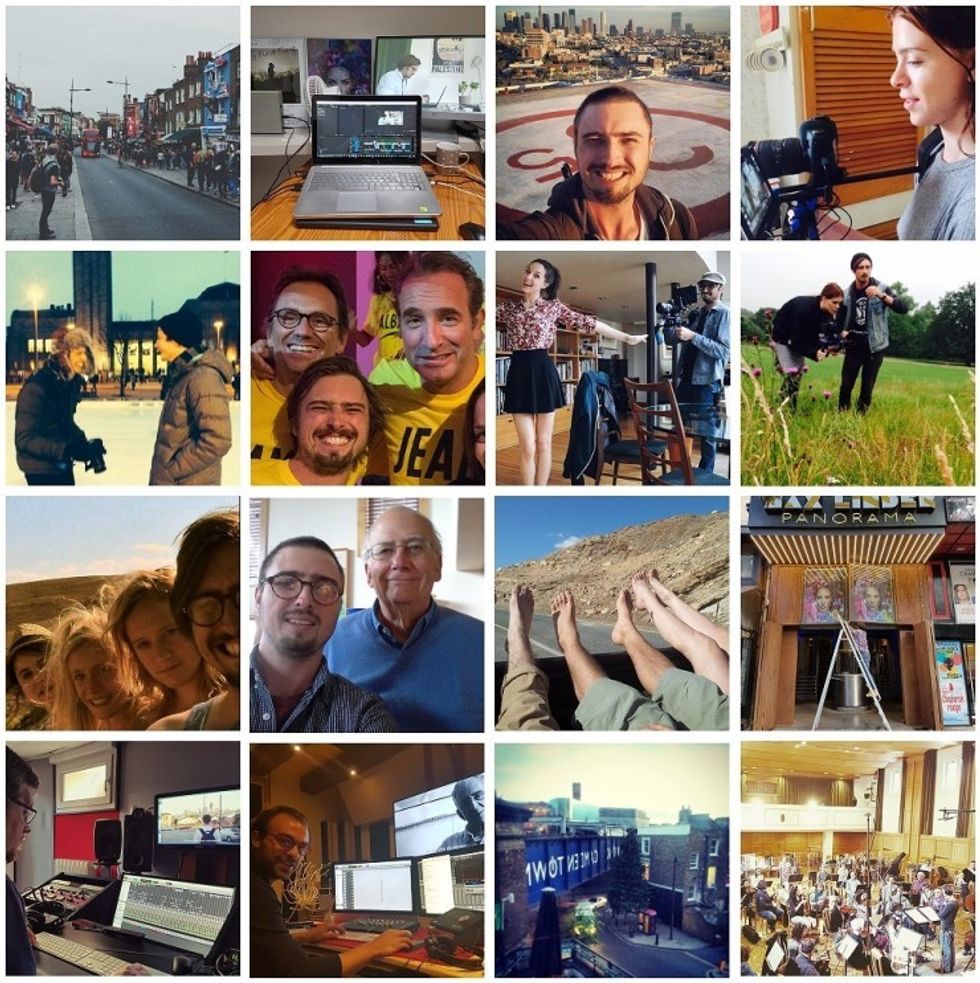8 Years, 5 Countries, 0 Producers, Many Friends—How This Indie Feature Got Made
This filmmaker explains this international project in their own words.
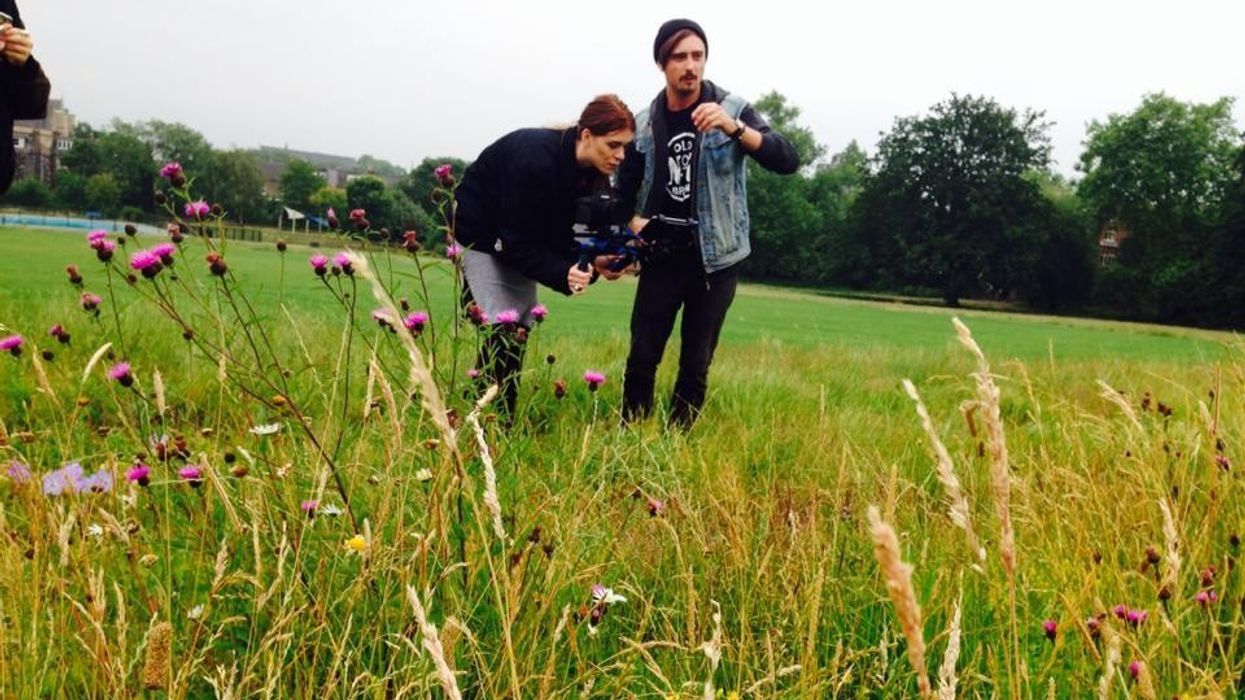
This post was written by Olivier Wright.
Over eight years, first-time filmmaker Olivier Wright made a feature film on free will and choice, across five countries, with leading philosophers and scientists.
Ψ - The Lives You Could Have Lived is now online, for free. Here’s how it happened.
What was the starting point for this project?
Back in 2014, I was studying political science at university in Paris, and working as a freelance translator. But my whole life I wanted to be a filmmaker, and when I turned 27, I thought, I have to act now.I had a few thousand dollars in the bank to buy some equipment and at first, I just wanted to make a short film to gain some experience. At that time I wanted to explore this idea for a film where we’d meet five alternate lives of the same character, each having made a different choice in the past, to question this issue of choosing a life to lead.
I didn’t have a filmmaking community around me to rely on, but I had friends in different cities around the world I could visit and shoot with. But I couldn’t pay an actor to travel with me everywhere, so that’s how I ended up acting in the film myself, which in the end made sense, as I could draw upon my own life for characters in the film.
Over time, though, what I thought was going to be a short film just kept growing and eventually snowballed into this project Psi which is now a feature film, along with a webseries and a making-of book.
What equipment did you buy?
A Canon 6D DSLR, with three lenses, a 24-105mm, a 50mm, and a wide-angle 14mm. I also got a tripod, a second-hand Glidecam, a shoulder mount, and a suction-cup rig to attach the camera to a car. And a backpack, to carry it all.
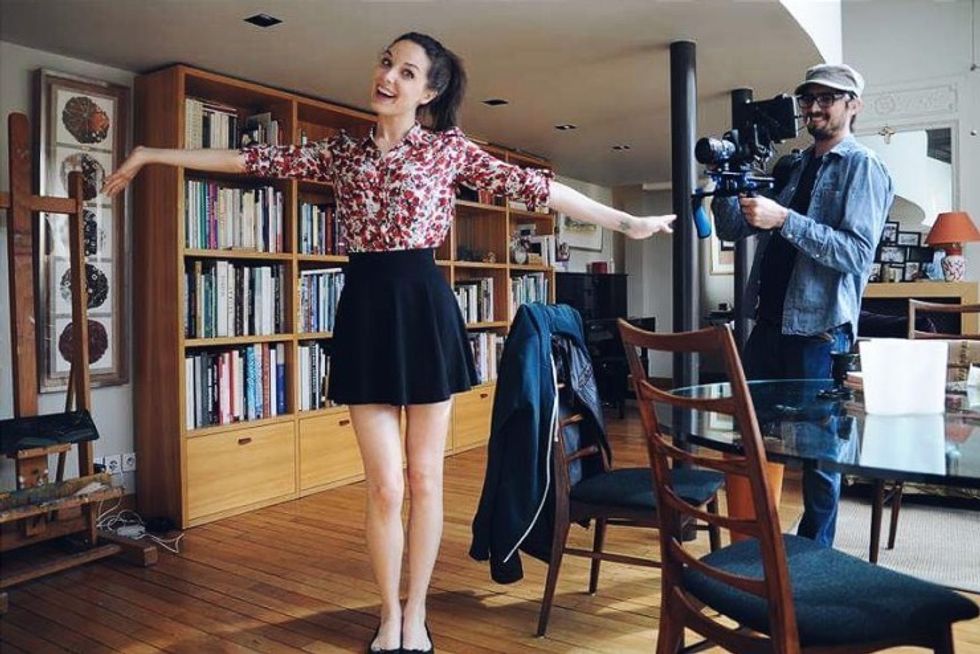
Why the subject matter of free will, choice, and five parallel lives?
I think everyone wonders how their life could be if they'd done things differently. And it’s amazing how some of the most important things in life—where you live, what job you have, who you fall in love with—if you think back, they often all hinge on tiny events that could so easily have not happened, or happened just a bit differently.
This is why I'm interested in free will. How much of our lives do we control? So the film was not only a way for me to experiment all these lives but as a project itself, it's an experiment in free will: could I just decide to take control of my future and dictate who I was going to become?
How did the shoot happen?
I traveled to the five locations in the film—Helsinki, Jerusalem, Paris, London, and Los Angeles—got together with my friends there, and went out to shoot. I had some blueprint for the characters, but it was all improvised, with minimal equipment, all in natural light, and no permissions. I'd handle the camera except for shots I'm in, in which case someone else would do it—friends, family, strangers.
There are some shots in Jerusalem where literally some kid we met in the streets moments before is holding the camera, and others where the camera is operated by Stéphane Le Parc, an established French cinematographer. And somehow, it all comes together.
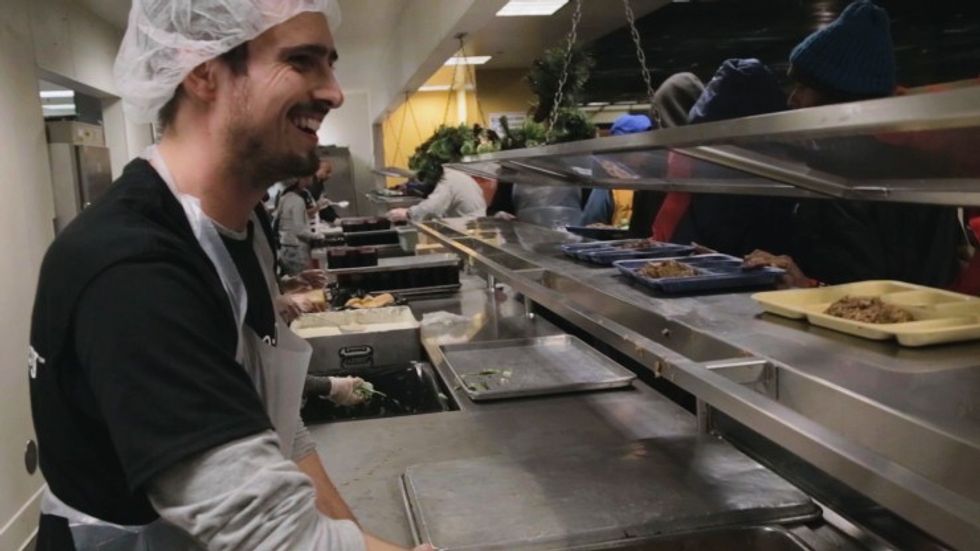
You shot in a homeless shelter in LA, and on a big-budget film set in France. How did you go about securing these locations?
It was a lot of knocking on doors and getting e-mails and just showing up. For Skid Row, I volunteered for a month to get to know the people, and I was fortunate enough to meet Joey, one of the managers at The Midnight Mission, who liked my project and allowed me to shoot there for a few days with some of the guys working in the kitchen. It was an amazing experience, and very humbling for me because they came together to help me make something which is, in the end, inconsequential—just a film.
Why did you interview intellectuals like Dan Dennett or Max Tegmark and how did you get them in the film?
Again, I e-mailed them, it was as simple. They were very open and friendly. I wanted the film to be a deep dive into free will and physics, and I felt there's no one better to provide insights on questions of philosophy and science than philosophers and scientists.
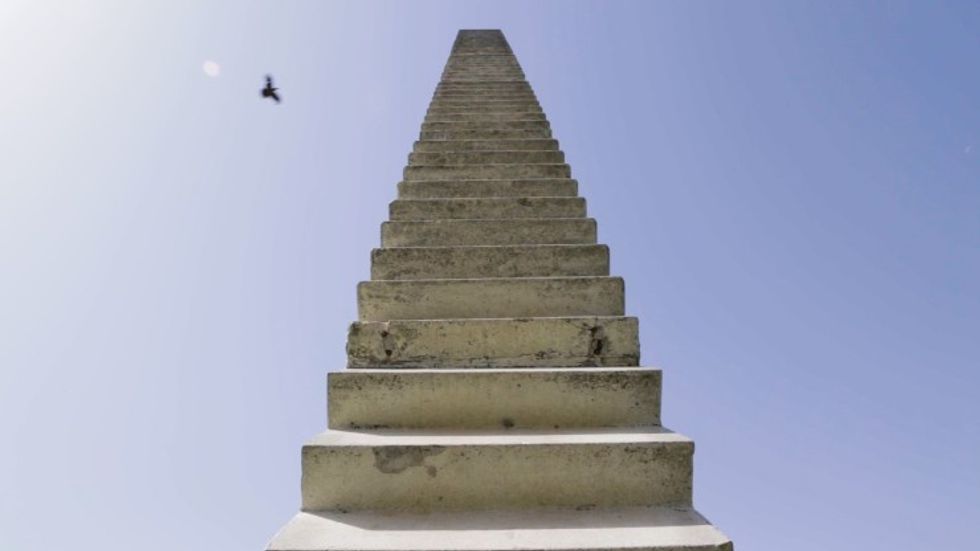
Music also plays a big role throughout the film—how did you go about that?
I didn't know any composers, so I found an article online on a young French composer called Alexis Maingaud. I loved his music, so I sent him an e-mail and we met over coffee. I told him my influences—Abel Korzeniowski, Max Richter—and we clicked. He loved the DIY spirit and the challenge. We spent a year working on the music and through some of his connections ended up recording some of it with the Budapest Symphonic Orchestra, which for me was one of the highlights of the whole production.
How did you produce the film and how much did it cost?
Throughout the whole shoot, I was still working as a freelance translator, so that’s how I funded it. Some of my friends and family chipped in from time to time to help out. Overall it cost roughly $25,000, spread over all these years—and that includes equipment, travel, accommodation, some services. I knew this film would never get made if I had applied for funding beforehand given my lack of experience. And so at first, this was a way for me to get the ball rolling and prove to myself that I could do it.
Psi is also a series of talks and a written making-of. Why?
With the interviews, I had over 12 hours of conversations, a tiny fraction of which would make it in the film. That was just a huge waste because the material is fascinating. So I thought I’d make a series out of them.
As for the written making-of, I started writing it because people I met, especially young filmmakers, were often curious about how this project was made. And so the best way for me to answer them was to compile it in writing, as a kind of long-form blog. The whole thing is a triptych—and that’s Ψ.
